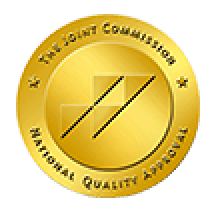Substance use disorder affects people of all ages throughout the country. When individuals grappling with the personal challenges of drug or alcohol abuse decide they want help, they are often faced with the question: “Do I need rehab?”
Acknowledging the need for alcohol rehab or drug abuse rehab treatment is an important first step. However, the path to a sober life can seem daunting. Each person has unique needs to consider when it comes to treatment options and rehab. Centers that treat addiction offer structured support, and knowing the signs that point toward the need for drug and alcohol rehab can make it easier to reach out to one of these facilities.
Whether you are personally contemplating rehab or seeking information for a loved one, it’s important to have as much insight and knowledge as possible about the recovery process for drug and alcohol addiction.
Recognizing the Signs: Do I Need Rehab?
The journey toward recovery often begins with self-reflection and an honest examination of one’s relationship with drugs or alcohol. Recognizing the signs of substance misuse is important when deciding whether to go to rehab.

Individuals dealing with addiction may find themselves caught in a cycle of increasing drug use, worsening mental illness, and more and more negative consequences in various aspects of life – from strained relationships to declining physical health. While some people may consider their symptoms mild, substance use disorder is a chronic disease that can have co-occurring mental disorders and physical dependence.
If someone is asking, “Do I need rehab?” there are certain substance abuse symptoms to look for, including increased secrecy, neglect of responsibilities, poor hygiene, or a loss of interest in once-cherished activities. Painful withdrawal symptoms, unsuccessful attempts at quitting drug use or alcohol, or an increased tolerance to the substance can point toward the need to go to rehab.
Signs that professional help is needed can be extremely difficult to acknowledge since it can begin to feel normal to use drugs or alcohol. Individuals can take a rehab quiz or have family members ask them the tough questions about how drug addiction or alcohol use has impacted daily life, relationships, and overall well-being.
Enter a rehab program is a personal choice driven by the desire for positive change. The question “Do I need rehab?” becomes a lot easier to answer once a person has acknowledged the need for an addiction treatment program.
Rehab Quiz Questions:
- Has your drug use or alcohol addiction led to the end of a relationship?
- Do you feel guilty about your substance use?
- Does your substance use disorder hurt your financial situation?
- Do you drink or use drugs in secret or try to hide your habit?
- Has your drug abuse or alcohol use negatively impacted your job?
- Have your withdrawal symptoms caused you to return to alcohol or drugs as a form of self-medication?
Navigating the Different Rehab Programs
Stopping drug or alcohol use involves more than a simple acknowledgment of the need for help; it requires a thoughtful exploration of the diverse programs available. Each person has their own relationship with substance use and will need a unique treatment process.
Those struggling with substance use disorder don’t have to do this alone – the health professionals at Gloria Rehab can answer questions about our different programs and work with patients to determine which would be most beneficial to their recovery.
Medical Detox for Drug Use:
Depending on the severity of addiction symptoms and dependency, drug detoxification may be the initial phase of addiction treatment. This focuses on safely and systematically removing substances from the body in a supersized environment.
Going through the withdrawal from physical dependence alone can be extremely dangerous, even life-threatening, but at a rehab center, and patients experience withdrawal symptoms in a safer and more comfortable environment where medical attention is available as needed.
Treatment Program for Alcohol Detox:
Alcohol rehab shares similarities with drug detox but is uniquely tailored to address the withdrawal symptoms associated with alcohol dependence. Our rehab facility can provide the info that patients need to know about the potential complications of alcohol detox, the significance of supervised, medical detox, and the holistic approaches that encompass both the physical and psychological aspects of recovery from substance use.
Healing Environment of Residential Treatment:
Residential or inpatient treatment programs provide a structured and immersive approach to recovery. Individuals reside in a supportive environment, receiving around-the-clock care and participating in a range of therapeutic activities and mental health services.
Treatment options are numerous. An individual may begin therapy, join support groups, and work on learning coping mechanisms to maintain sobriety from drugs or alcohol in their daily life

Addressing Mental Health Care for Co-occurring Disorders
Many rehab centers have a mental health services administration that recognizes the need for dual diagnosis programs. When a person needs to go to rehab, it’s important to consider how mental health may play a part in their relationship with substance use.
American Psychiatric Association discusses how using drugs or alcohol is prevalent in those with mental health issues and the role of healthcare professionals in discovering triggers and building healthy habits to cope with substance use. A patient can begin therapy and start developing the necessary skills for long-term sobriety.
Addressing Common Concerns about Rehab for Substance Abuse
Answering yes to the question “Do I need rehab?” is a courageous decision, yet common concerns and misconceptions often stand in the way of individuals taking that first step. Addressing these fears head-on can pave the way for more people to take an informed, confident approach to seeking help.
Demystifying the Rehab Experience
The prospect of entering inpatient or outpatient treatment for substance use disorders can be intimidating, especially when the experience is unknown. At Gloria Rehab, we understand this and want to help make the transition into our facility as smooth as possible.
We greet patients at the gate and guide them into our structured, supportive environment. After a full medical assessment, individuals will work with our team to decide on a treatment plan. For those who are withdrawing from alcohol or drug abuse, detox may be the first phase. This can be a scary start, but we are committed to providing the support needed to make it as comfortable as possible.

Since medical detox requires an inpatient stay, our team will help patients navigate the challenges that come with taking a break from day-to-day life. Individuals will get therapeutic help and mental healthcare services to help them address both their immediate concerns and the long-term skills needed for sustained recovery.
Patients may experience various stages of recovery and rehabilitation while at a treatment facility. When going through the detox process, our team is there. And when it’s time for an individual to transition from medication treatment, they are still there to help make the transition as seamless as possible.
When it comes to daily life, our team will help with an individualized treatment plan that addresses everything from the need for dialectical behavior therapy (dbt) and cognitive behavior therapy (cbt) to family therapy.
The recovery journey doesn’t end when a patient leaves the treatment center – follow-up services deemed appropriate by the mental health services administration team will help make sustained recovery possible as patients integrate into their daily lives.
Redefining the Stigma and Judgment of Seeking Help
The stigma surrounding substance abuse and addiction treatment can be a significant barrier for people asking themselves, “Do I need rehab?” Challenging social perceptions and emphasizing the courage it takes to confront addiction can help individuals admit they need rehab and prioritize their own well-being without fear of judgment or discrimination.
The sponsor system at Gloria Rehab can be an important aspect in helping individuals feel less alone and less judged in their recovery. An individual will work with a sponsor who has completed treatment themselves and can provide unique insight and support.

Balancing the Need for Confidentiality and Support
Privacy concerns often deter individuals from entering rehab. Talking to one of the admission counselors about what confidentiality standards the treatment facility follows can help. It’s important to know that, similar to the confidential aspect of Alcoholics Anonymous, rehab programs are designed to be a safe space for individuals to share their experiences openly and honestly without fear of their privacy being violated.
Exploring Accessibility and Financial Options
Financial considerations can add an extra layer of stress to an already challenging decision. There are various options for financing addiction rehab, including health insurance coverage and sliding scale fees. Not every insurance provider covers rehab, so it’s important to find out what benefits are available.
There are also programs available for those with financial needs. Individuals can apply for grants and assistance via these programs. A national institute such as the Substance Abuse and Mental Health Services Administration can be a good place to start.
Having Concerns is Normal
Concerns are normal. Navigating your questions with a professional in a supportive environment can help you feel more confident and determined when seeking help to overcome addiction. Reach out and ask questions about the process and the facilities, and ask for any other information you might need. Getting started can be scary, but it can also be the first step in sustained recovery and taking back your life.

The First Step in Addiction Recovery
Making that first contact to seek treatment for drug or alcohol addiction is the most terrifying step of the entire journey. It can be daunting and overwhelming to consider how to arrange treatment, where to go, and how to pay for it. However, the staff at our treatment facilities are available to help individuals and their families work through these concerns and prepare for success.
The process of starting inpatient rehab can seem scary at first, and it’s important to know that asking questions is encouraged and leads to a well-informed decision about addiction treatment. There are various rehab programs to suit each individual’s needs, and individualized treatment plans ensure that each patient’s needs are met.
Taking the first step is brave, and individuals who reach out to get help deserve to be treated with respect and kindness. Be brave, and send us a message letting us know you’re ready to get the help you need for a healthier future. You’ll be glad you did.




